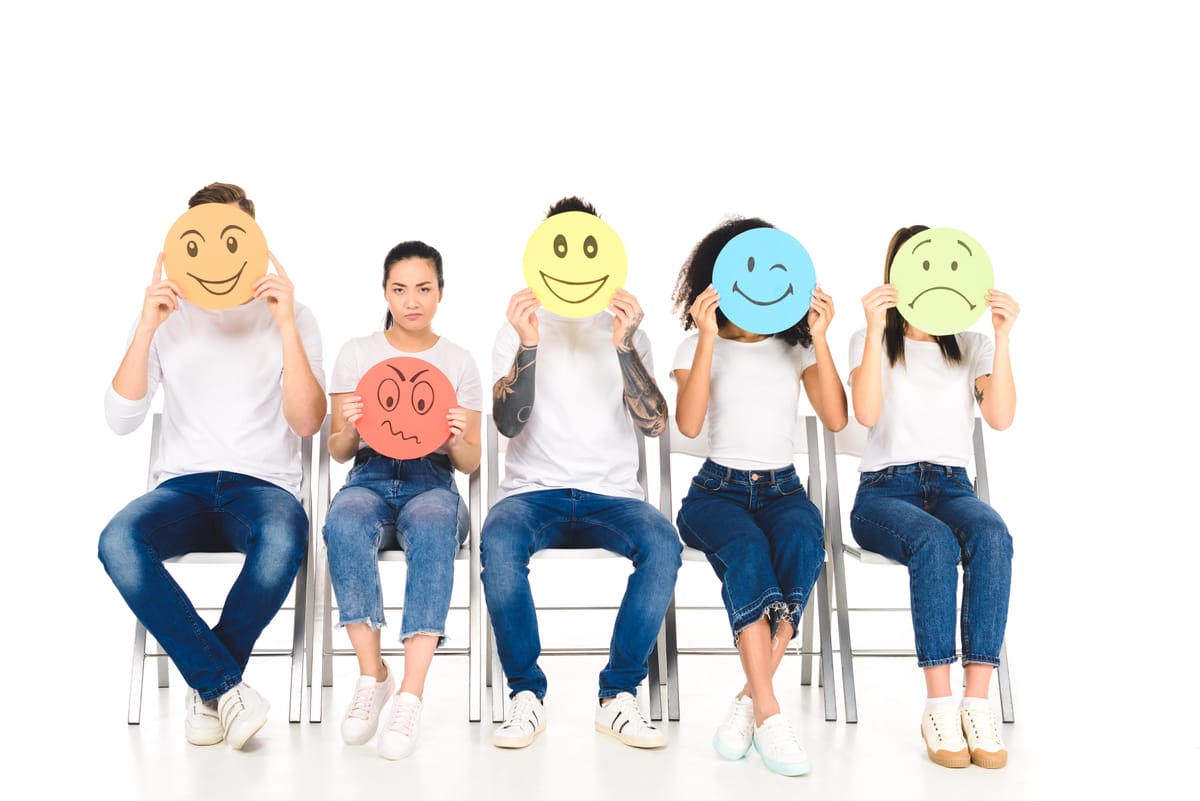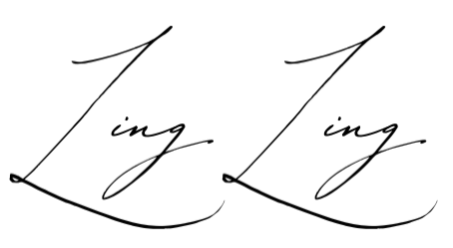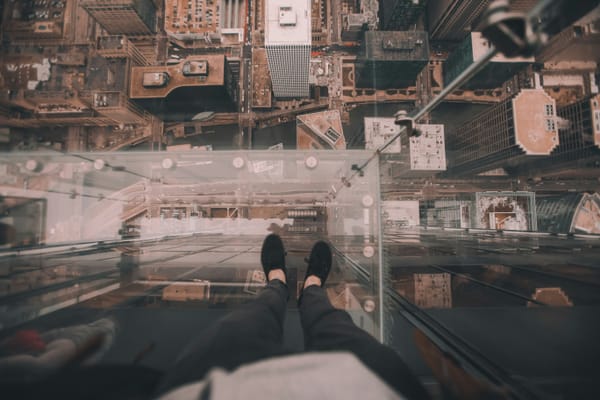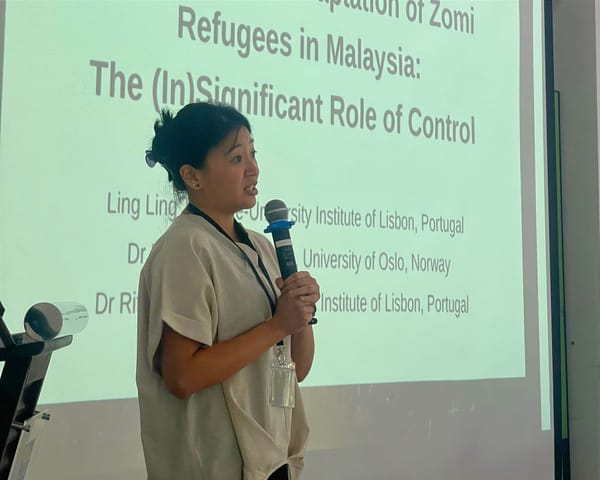We All Do This But Nobody Is Talking About It. Covering.
Everyone covers. People cover to tone down a disfavoured identity to fit into the mainstream. What do you cover?

A friend recently initiated an LGBTQ+ support group in a large multinational company in Singapore. The executives, human resources, and diversity team were thrilled and provided full support regarding time, money, and resources.
Wouldn't the LGBTQ+ employees be thrilled? To be recognised, supported, and appreciated?
As the weeks and months passed, the group remained small, with only a handful of regular members.
What happened? I asked.
Some of the LGBTQ+ colleagues were hesitant to participate. If they did, they're afraid of being discriminated against by their boss or peers.
What is Identity Covering?
Kenji Yoshino, a gay Asian American legal scholar, published a book, Covering: The Hidden Assault on Our Civil Rights. Yoshino defines covering as
Everyone covers. To cover is to tone down a disfavored identity to fit into the mainstream. In our diverse society, all of us are outside the mainstream in some way […] every reader of this book has covered, whether consciously or not, and sometimes at significant personal cost.
Some hide their age by colouring their hair or wearing makeup. Some change accents or tone of voice when conversing with different people. Some deny their association by avoiding their community and "hanging out" with the cool group.
We have all covered before. The negative stereotype of our identity gets hidden in the closet, swept under rugs, or stored in the attic, away from judging eyes.
People cover for many different reasons. Some cover to appear more likeable, desirable, or even more competent. For others, covering is a survival tactic to avoid judgment, discrimination, punishment, imprisonment, and even death.
Four Types of Covering
Once you understand the concept of covering, you can find it almost everywhere, especially in your behaviours. Yoshino defined four types of identity covering: advocacy, affiliation, appearance, and association.
Advocacy-based Covering
Advocacy-based Covering occurs when people choose to champion (or not) their group. People may stay silent when others make derogatory remarks about their group. Some may inadvertently reveal their identity if they speak out and stand up for their group.
For example, nearly 30% of the population in Silicon Valley consists of Asians2. Yet, technology companies based in Silicon Valley remained silent about the Anti-Asian violence during COVID-19. Employees on the Ellen DeGeneres Show remained silent about the racism, fear and intimidation faced in the toxic work environment. The show shut down after a former employee spoke up.
Affiliation-based Covering
Some people avoid behaviours associated with an identity. In Affiliation-Based Covering, people distance themselves from the negative stereotypes of an identity. This distancing can involve changing accents, language, names, places of living, etc.
For example, Margaret Thatcher hired a voice coach to make her sound more authoritative and distance herself from the stereotypes of being a “female leader.” Other leaders and celebrities changed their names to reduce their affiliation with a racial group. Bruno Mar's real name is Peter Gene Hernandez. Helen Mirren changed her name from Ilynea Lydia Mironoff.
Appearance-based Covering
Appearance-based Covering occurs when people alter their looks to blend in. This form of covering focuses on how a person presents themselves to the world. It includes changing clothes, grooming, or behaviour.
For example, an older single woman may wear a wedding ring to avoid questions about her marital status, which is also known as Marital Discrimination. People may wear long-sleeved shirts to hide their tattoos in professional settings to avoid judgment.
Association-based Covering
Association-based covering is when people choose to avoid contact with their group members. When people see other group members, they distance themselves or hang out with people from different groups.
There were instances where people of African, Hispanic, and Asian American backgrounds acted white in the professional and academic setting to get ahead. Acting white means a person alters their identity to disassociate themselves from their group. This could mean hanging out with only white colleagues, speaking with a white accent, hiding the fact of living in a non-white neighbourhood, and so on. It could also mean dismissing and ignoring their group members.
In another example, women in male-dominated industries may feel pressured to play like men, meaning women behave in a stereotypically masculine way. Playing like men could mean being ruthless, unsympathetic, emotionless, combative, aggressive, or competitive depending on the industry.
According to Bain, women in jazz were told to... either be good girls or play like men. In jazz, a woman's talent and her sexuality are seen as incompatible. She could either be pretty and untalented or talented and not pretty. Being good girls meant that a woman's look was emphasised over musical ability. Play like men meant a woman's talent was due to her "masculine" nature. She cannot be both talented and feminine.
Why is Covering Bad?
People cover for good reasons. However, covering has its downsides, such as encouraging groupthink, lacking authenticity, and decreasing a sense of well-being.
Groupthink occurs when people value conformity and harmony over diverse ideas and perspectives. With groupthink, the group makes suboptimal decisions, and people behave irrationally. For example, Tesla employees stayed silent about the pervasive gender discrimination and harassment in the workplace, until a former employee decided to sue for sexual harassment.
If we cover an essential part of our identity, we deny an integral part of ourselves. Covering prevents people from showing up authentically. Over time, doubt sets in. Self-confidence and self-esteem fade. Inner conflict arises—the battle between keeping appearances versus expressing authenticity rages within, impacting our sense of well-being.
Covering prevents us from being present. Fear stops us from fully engaging and bringing our whole selves to the community, workplace, school, and families. Denying our authentic self decreases our sense of well-being. A person's well-being is linked to their ability to show up authentically at work. The less authentic an employee is at work, the higher the chance an employee will experience mental and physical illness.
Can We Safely Uncover?
Each person's situation is different. Uncovering is not a big deal for some because others within the community have uncovered with minimal consequences.
For others, covering is used for survival. People cover to protect themselves from certain dangers in society. Uncovering can cost them their lives and the lives of their loved ones. And so, before deciding to uncover, you need to consider the consequences of uncovering. Here are some questions to help you weigh in on the matter.
- What might the consequences be if I uncover?
- Will uncovering bring me or my loved ones harm?
- Are these perceptions of harm real?
- What are the consequences if I stay covered?
- What benefit will (un)covering bring me?
- When is it a good time to uncover?
- Why do you want to uncover now?
Don't feel pressured to uncover if you're not ready. Only you will know your situation best. Only you can decide when and how it is best to uncover. Where, when, and how to uncover is your fundamental right. But know this,
You do not need to do this alone.
Please find people you trust and seek their advice and support. Find trusted online communities and speak to their members, those who have gone through the same experience. Read stories of people who have gone before you to get a sense of what may happen.
Everyone covers. It doesn't have to be this way.
Covering is what we all do to survive in our socially brutal world. We don't have to let this continue.
Yes, people may take their time to uncover. We can all take small steps to allow people to express their authentic selves safely.
Celebrate differences. Create safe spaces. Communicate support. Get educated.
We can all do our part to create an inclusive and equitable world.
This post is updated from the originally published post on Culture Spark Global on 14 October 2021 and written by the same author, Ling Ling Tai.





